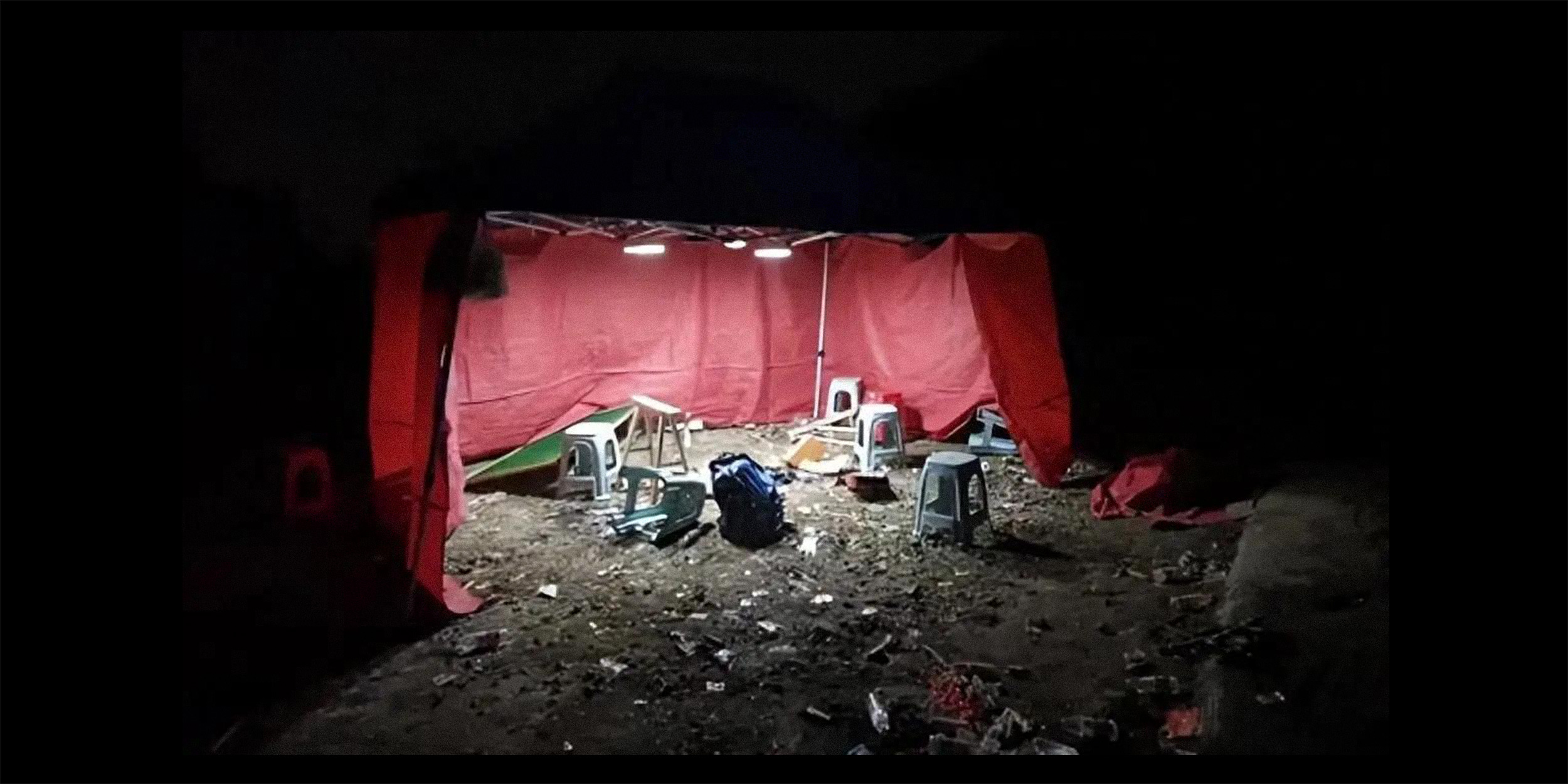
Nineteen people were arrested in Zhuji City, in the eastern Zhejiang province, for operating an illegal mobile casino near a graveyard. Authorities said the group, including drivers and lookouts, used the graveyard for gambling sessions between 10 p.m. and 2 a.m.
According to a report in the Shanghai-based outlet The Paper, three individuals, including the organizer identified only by his surname Hu, were transferred to the prosecutor’s office on charges of operating a gambling house, while the other participants were detained.
The local public security bureau told The Paper that this group had operated the mobile casino on five previous occasions, generating profits of nearly 20,000 yuan (about $282). The setup included a minibus for transport and lookouts stationed on the mountainside, as well as amenities such as braziers, food, cigarettes, and betel nuts, in addition to a lending service for gamblers.
Under Chinese law, those caught participating in gambling activities can be detained for up to 15 days and fined up to 3,000 yuan. Organizers of such activities on the other hand face up to 10 years in prison and may be subjected to additional fines.
The operation was part of a wider crackdown on rural gambling across China, where authorities are employing new technologies and strategies to combat the elusive and increasingly sophisticated nature of such illegal activities.
Gambling activities tend to increase around Spring Festival, attributed to people returning to their hometowns from cities becoming prime targets for local gambling operations, according to Qi Xiguo, an inspector with the Ministry of Public Security.
As authorities intensify efforts to curb such activities, gambling in secluded locations, and mobile gambling setups designed to evade police detection, are increasingly prevalent, particularly in rural regions of provinces like Yunnan, Shanxi, and Anhui.
In November 2022, the Ministry of Public Security initiated a campaign aimed at dismantling illegal casinos and halting gambling gatherings in rural areas. Official statistics indicate a 23.1% decrease in rural gambling incidents in the six months following the operation’s launch, compared to the same period the previous year.
According to Qi, with improved transportation and connectivity in rural areas, some gambling groups have become more systematic and organized, forming “professional groups.” Such groups often relocate their operations to remote areas along provincial, city, and county borders where enforcement is less stringent, complicating efforts to monitor and control such activities.
“The targeted crackdowns have yielded some positive outcomes, yet they also underscore the persistent issue of gambling in rural regions. The ability of these ‘professional’ underground casinos to move and hide their operations continues to grow,” said Qi.
In response, authorities are enhancing their capabilities with new technology. For example, in Anhui, police utilized a drone equipped with an infrared camera to accurately locate suspects without alerting lookouts.
Authorities across various regions have also initiated the “Clear Wind 2024” campaign. In the southwestern city of Chongqing, since December 2023, law enforcement has investigated 62 criminal cases of rural gambling. The effort has led to the dismantling of 26 criminal gangs and the resolution of 174 public security cases related to gambling.
Contribution: Lü Xiaoxi; editor: Apurva.
(Header image: The gambling area in Zhuji, Zhejiang province, 2024. From local police)